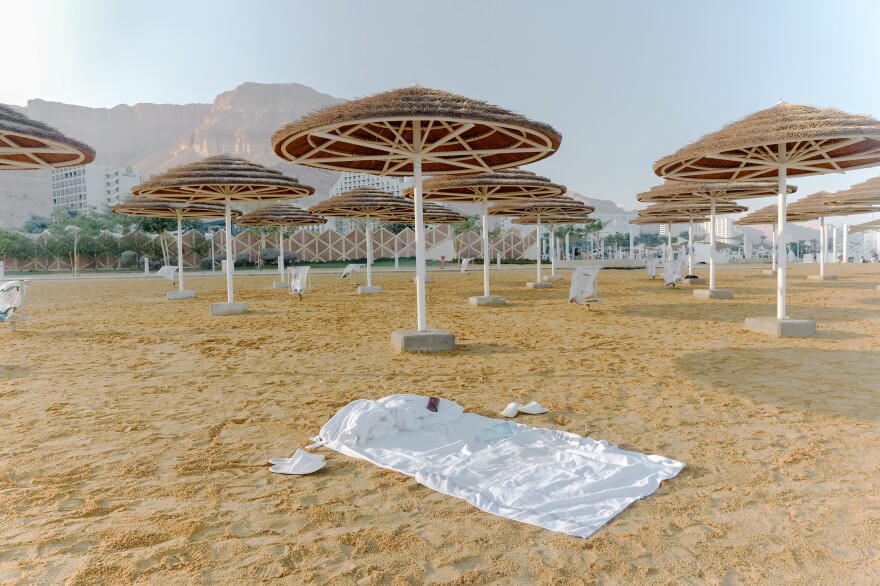DEAD SEA — It is an unparalleled wonder of the world: the lowest exposed spot on Earth, its therapeutic waters are so full of salt that bathers float right to the top. This natural spa is a source of rich minerals used by the ancient Egyptians for mummification, and fabled to be the biblical site of Sodom and Gomorrah.


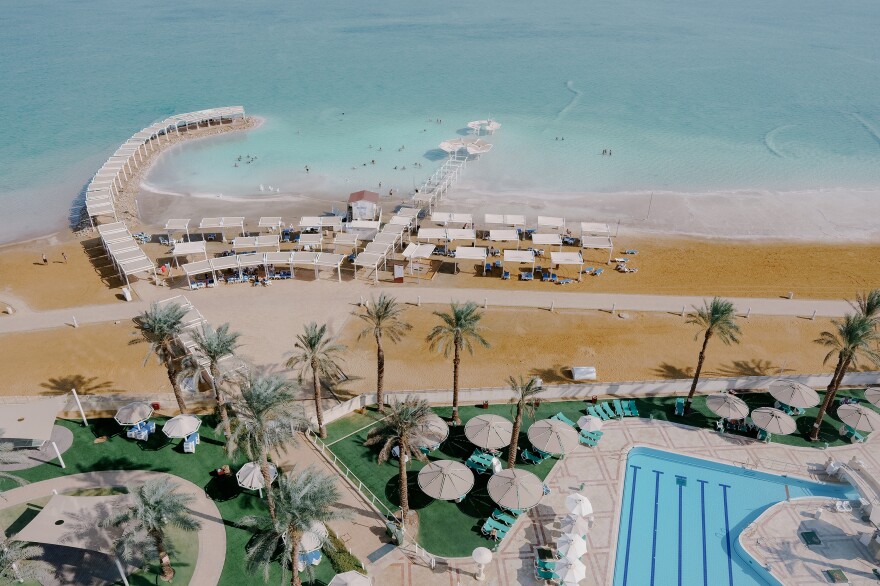

But today the Dead Sea is dying, and its banks are collapsing. The water level is dropping close to 4 feet every year. The main part of the lake is now around 950 feet deep — about 15% shallower, and a third of the surface area, compared to its shape half a century ago.
"You've seen a living disaster in front of your eyes," says Jake Ben Zaken, an Israeli who says he operates the only passenger boats on the Dead Sea.
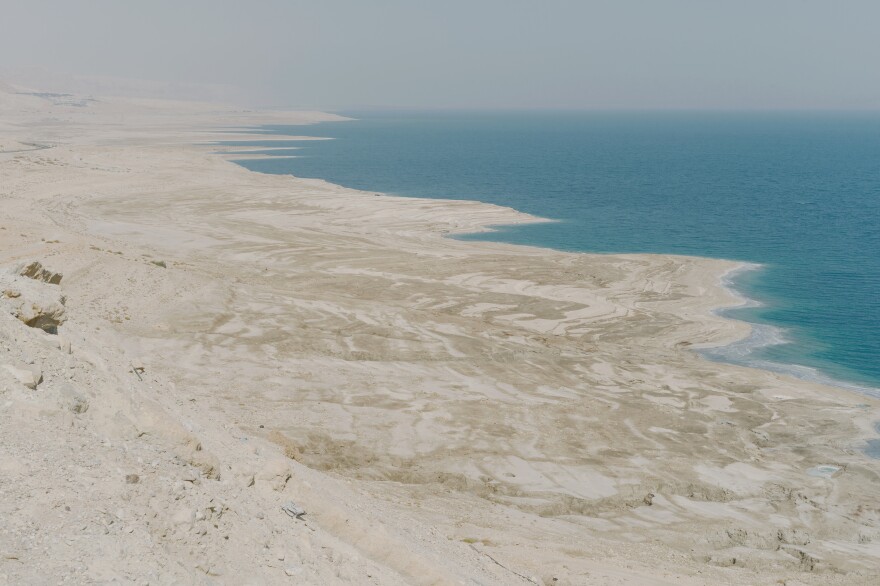
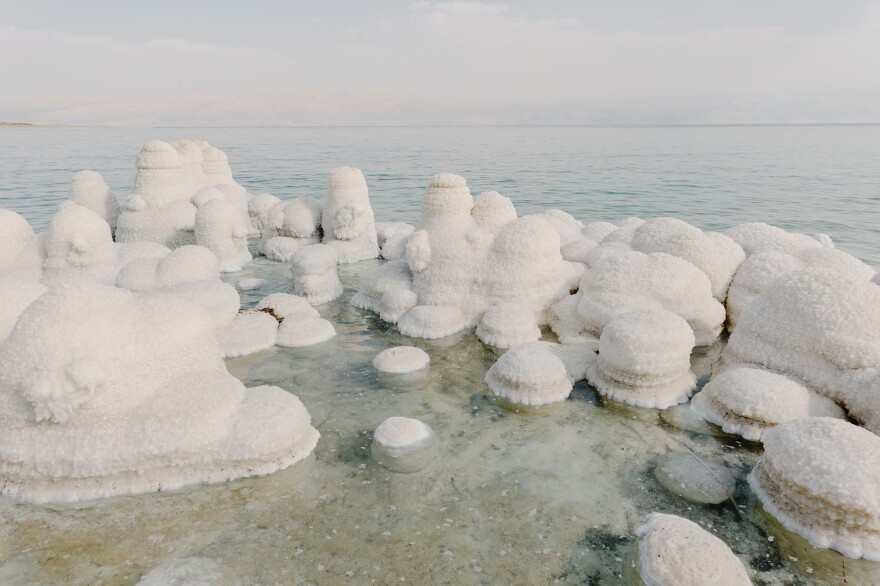
As the lake recedes, it changes the landscape around it in both beautiful and ominous ways. Exquisite salt formations are revealed where the water dries up. But there are also apocalyptic scenes of condemned beaches and parking lots swallowed up by sinkholes along the shore.

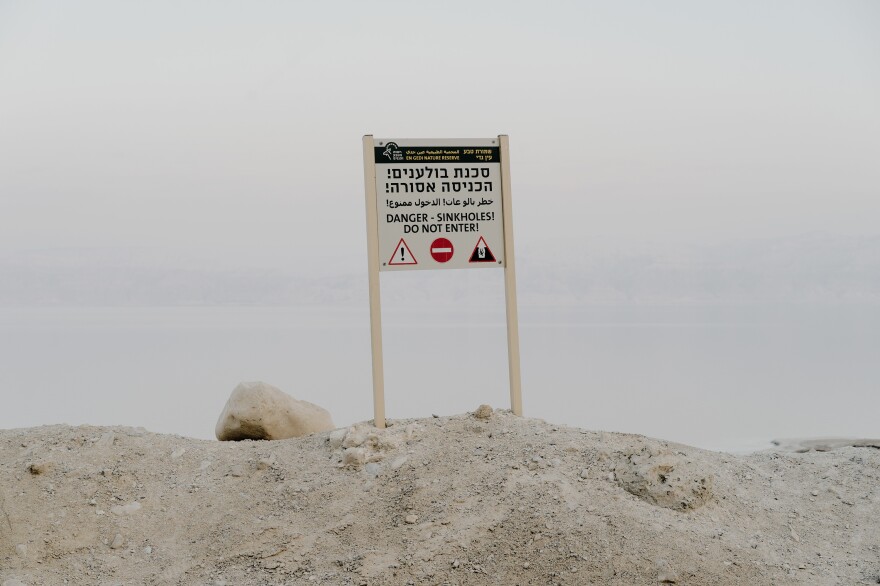
Solutions have been proposed to replenish the Dead Sea, but no significant action has been taken to prevent its further destruction. Climate change makes rehabilitation of the lake seem even further out of reach.
NPR took a boat ride on the Dead Sea to explore what is being lost, and what it could take to prevent more erosion.
Several countries and corporations cause the problem
The Dead Sea is a landlocked lake that's partly in Jordan, Israel and the Israeli-occupied West Bank.
The lake — named the Dead Sea because its high salinity is inhospitable to aquatic life — has been drying up for decades.
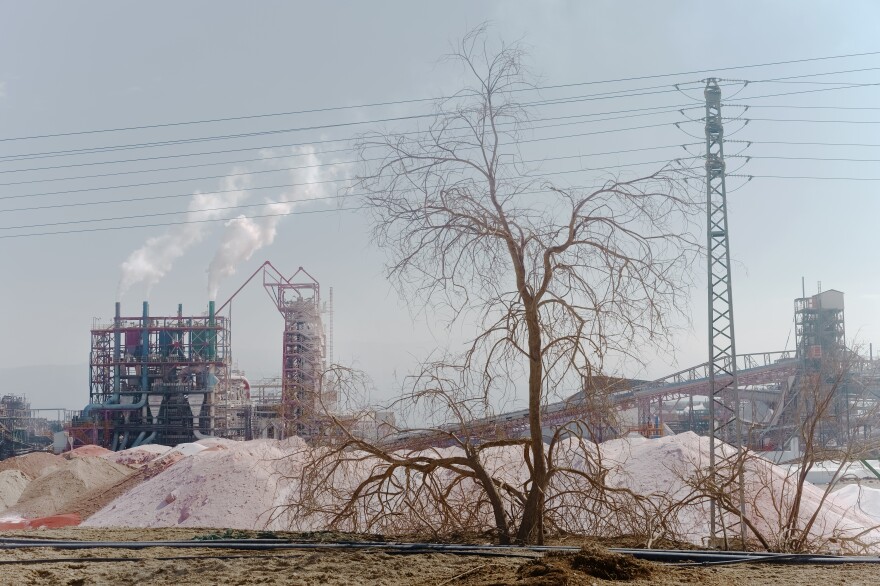
It's a human-made problem, say environmental researchers and officials. In a region where water is scarce, Israel, Jordan and Syria in the last several decades have diverted the freshwater sources that feed the Dead Sea, for drinking water and irrigation. Plus, Israeli and Jordanian companies evaporate Dead Sea water to harvest its rich minerals for export. The part of the lake dotted with Israeli hotel resorts, a popular spot for tourists to float in Dead Sea water and lather the lake's mineral-rich mud on their skin, is actually an artificial evaporation pool in the lake's southern basin.
Loading...
Ben Zaken has special Israeli permission to give boat and kayak tours — what he calls ecological "awareness tours" — in this militarized border zone.
"You see this thing that sticks out there?" he says from the boat, pointing to a spot on dry land on a hill high above. "Seven years ago, I used to tie my boat there."
It's shocking to see the ridges along the shore, a clear four-foot drop every single year. The salty sea is receding so quickly, it leaves behind stunning salt formations along the shores: small salt pebbles on the beach, large salt mushrooms on the shore and tall salt chimneys sticking out from inside the lake.
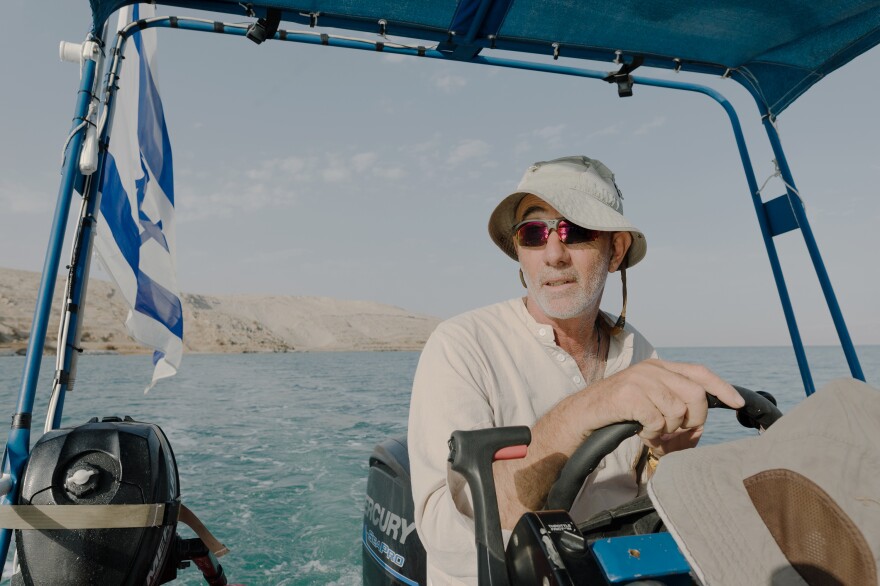
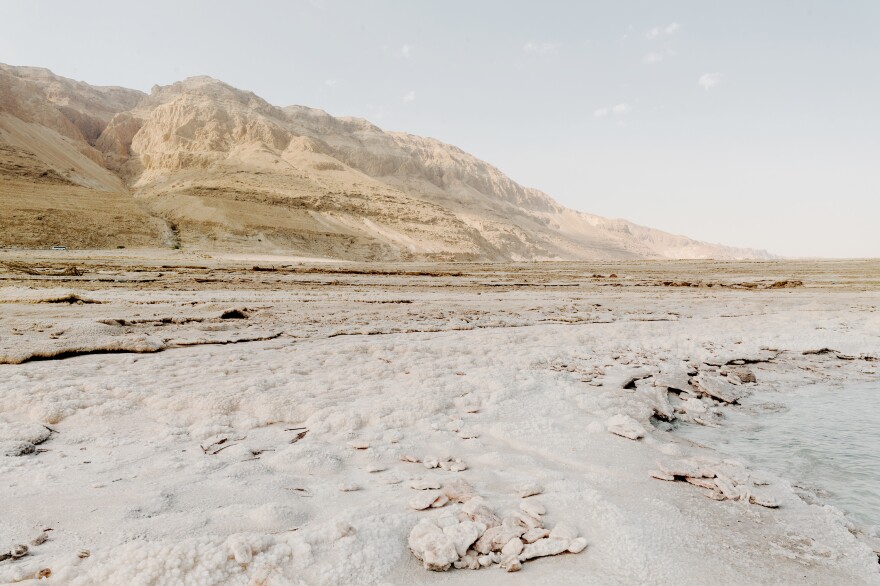
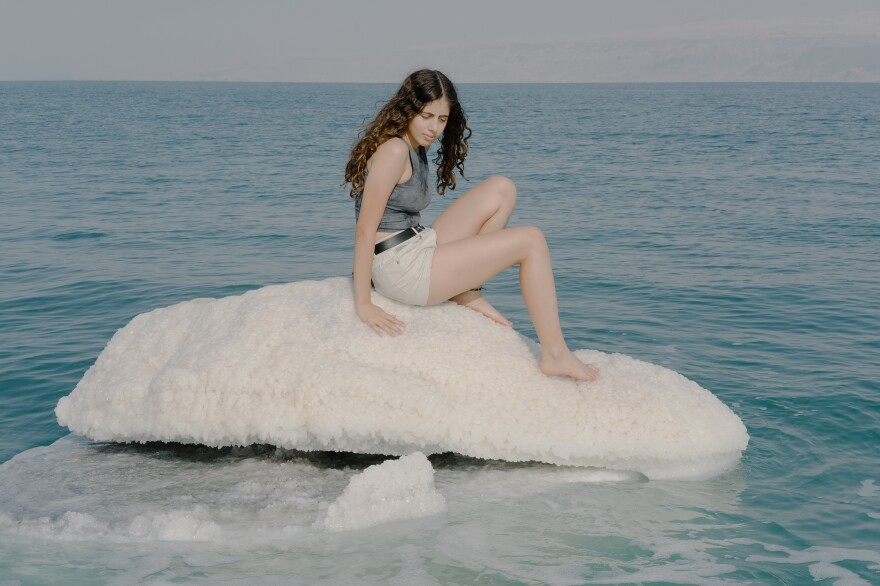
As the lake dries up, salt deposits dissolve underground, and cavities along the shore open up into sinkholes — large craters in the earth.
One popular beach was closed because a sinkhole swallowed up the parking lot. The shore remains eerily littered with beach chairs, a mini barbecue set and an abandoned bar.
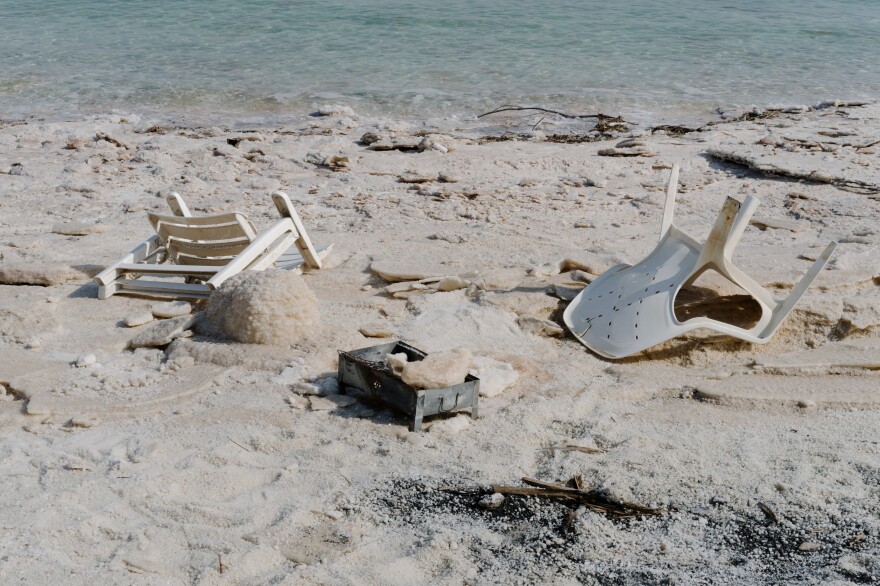
Nearby, farmers have abandoned watermelon and basil farms along the shores because of the dangers of sinkholes. Four years ago, part of a main road sank, as if the earth opened up and swallowed it.



"It breaks my heart because there's just so much destruction," says Dead Sea researcher Yael Kiro from Israel's Weizmann Institute of Science, standing at the edge of the sunken road. "This is just a direct result of the lake level drop."
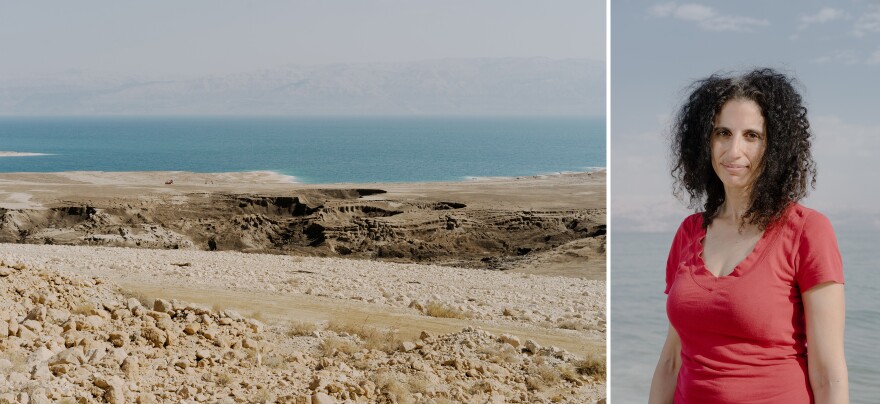
There's no significant action to save the Dead Sea
Israel and Jordan recently struck agreements on water cooperation that include a deal to rehabilitate the Jordan River — the main freshwater source that flows into the Dead Sea.
"The Dead Sea and the sacred Jordan River are treasures of the past and legacies for our future," King Abdullah of Jordan said at the United Nations Climate Change Conference in Cairo on Nov. 7.
But the Jordan River agreement, as announced by Israel, does not appear to address the threats to the Dead Sea.
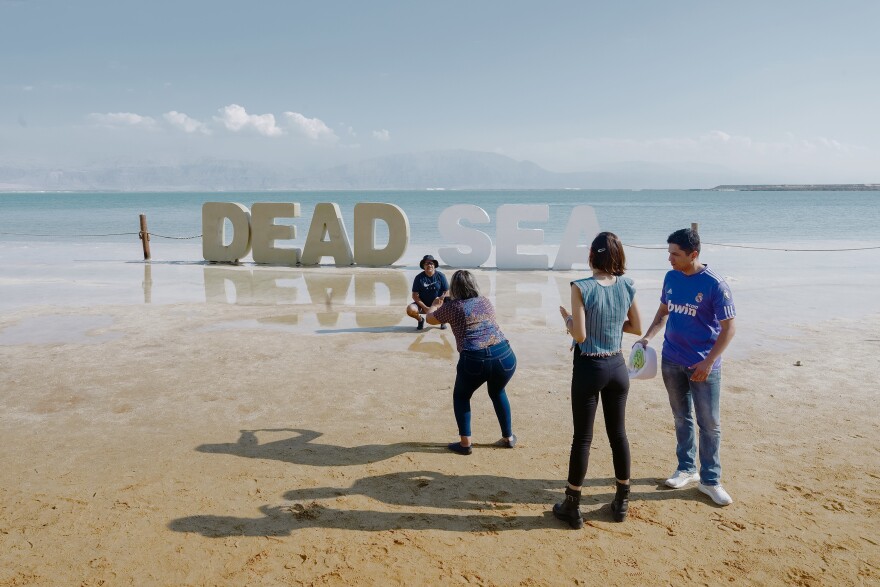
The World Bank, the Israeli government and a Mideast ecological peace organization have advanced proposals to rehabilitate the lake. One proposed solution is to build a canal to replenish the Dead Sea with desalinated water from the Red Sea. Another proposal is to boost the Jordan River's flow to help replenish the Dead Sea. A third would require mining companies to pay for the lake's rehabilitation. No significant action is being taken to adopt any of these steps.
Climate change has an indirect effect. As the climate warms, the desert region around the Dead Sea gets hotter and rainfall becomes more rare. As populations grow, scarce water resources will be in higher demand for drinking and irrigation, leaving little left for replenishing the Dead Sea.
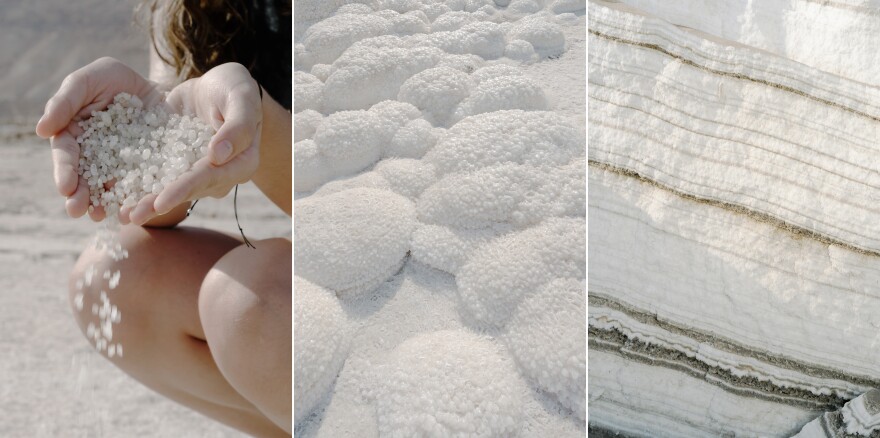
"This is so sad, because the solutions [are not] easy to make, and very, very expensive now, unfortunately," says Galit Cohen, director general of Israel's Environmental Protection Ministry, which published its latest proposal to save the Dead Sea in June.
"If you want to bring back water to the Dead Sea, it means desalination water all around," Cohen says. "This is very, very expensive, of course, and not all the countries around us can pay for that amount of the money."
A deadline is approaching that could compel the Israeli company extracting Dead Sea water to limit environmental harm to the lake. Its concession rights to mine the Dead Sea's minerals expire in 2030 and it seeks a new agreement in the coming years. Israel's Environmental Protection Ministry is calling for new terms that would require the industry to reduce its pumping of Dead Sea water.
Some are balancing pessimism and optimism
Two Americans, Shay Rabineau, who teaches Israel studies at New York's Binghamton University, and photographer Julian Bender, recently spent two weeks hiking the perimeter of the Dead Sea to write a book about the vanishing lake and its impact on surrounding communities.
"What we've heard is a lot of pessimism," Rabineau said, after crossing into Israel from the Jordanian side of the Dead Sea. "People on the Jordanian side have said our lives have gotten worse ... it seems like most people are accepting that the level of this part of the [Dead] Sea may drop another 100 meters, 150 meters, in the future."


A 100-meter (almost 330 feet) drop could take over a century, at which point some scientists say the Dead Sea may stabilize, but become a very small lake.
Some researchers are optimistic that the Dead Sea will not reach that dangerously low level, because Israeli and Jordanian companies mining Dead Sea water will eventually see the resource dwindle.
"It will go down and down and down until one day it will be difficult for [the companies] to pump water," said Rafi Benvenisti, who previously served as a senior adviser to the Israeli government on Dead Sea rehabilitation.
The question is how long this natural wonder, that's existed for millions of years, will keep disappearing before action is taken to reverse its decline.
Copyright 2023 NPR. To see more, visit https://www.npr.org.
